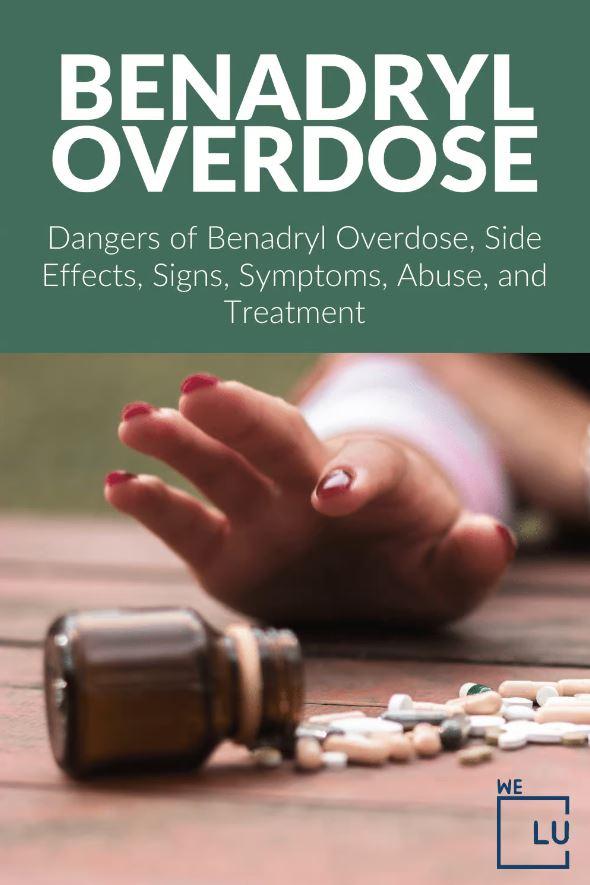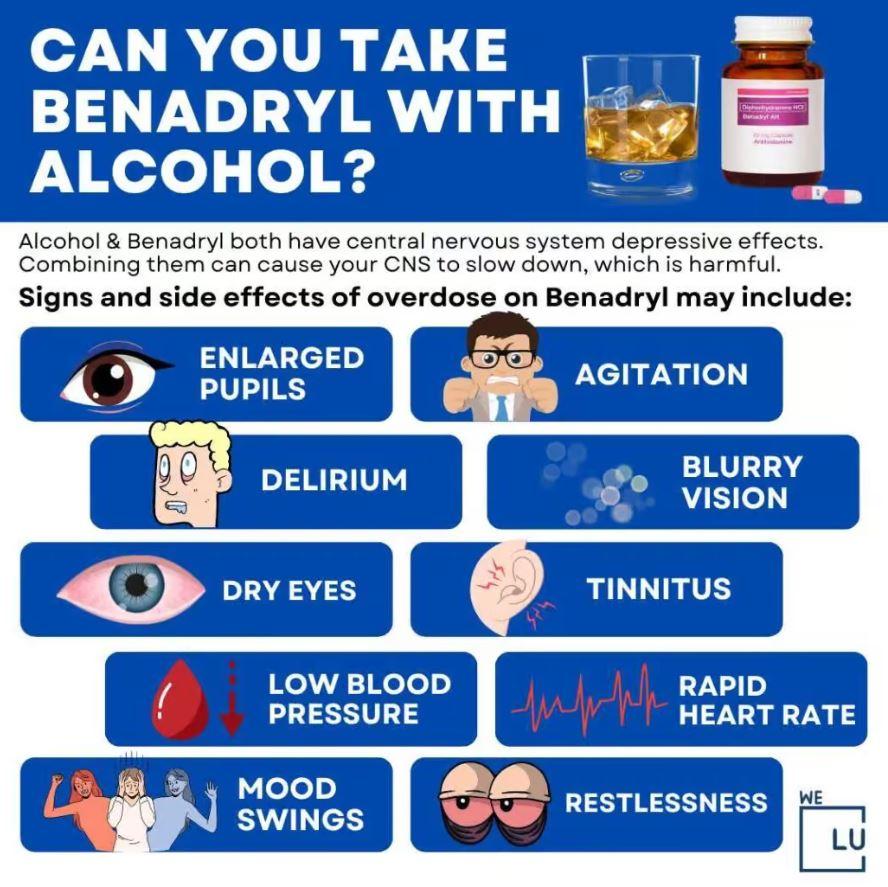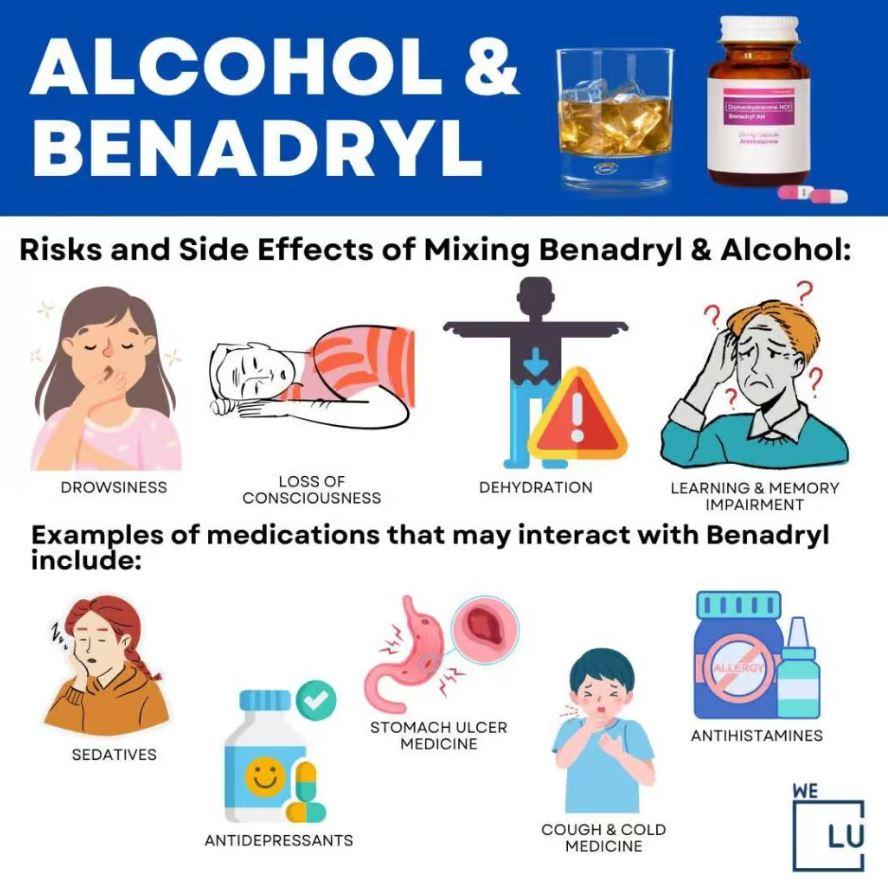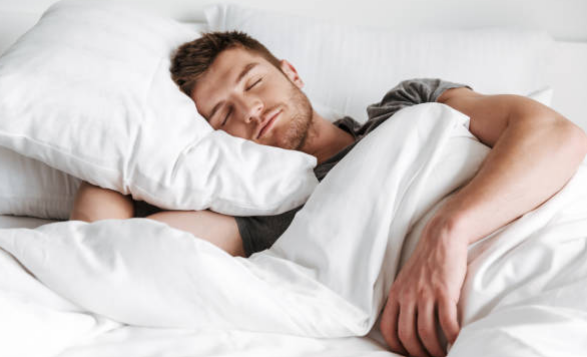Benadryl Addiction
In today’s fast-paced world, the pursuit of relaxation and sleep often leads individuals to search for various solutions. For some, that solution comes from over-the-counter medications like Benadryl. While Benadryl is a widely-used antihistamine for allergy relief and sleep aid, it has also raised concerns about its potential for addiction and abuse. This article delves into the signs and symptoms of abuse and the critical question: Is Benadryl addictive? Understanding the risks associated with this seemingly harmless medication is essential for making informed choices about its use and seeking help when needed.
At We Level Up Treatment Center, you can expect personalized care, evidence-based therapies, and a supportive environment that fosters healing and sobriety.
Signs of Benadryl High Addiction
Signs of Benadryl high addiction refer to the observable indicators or behaviors that suggest an individual is using Benadryl in an excessive and problematic manner to achieve a state of euphoria or altered consciousness, often referred to as a “high.” Benadryl, which contains diphenhydramine, is an over-the-counter antihistamine commonly used for allergies and as a sleep aid. When used as directed, it is generally safe. However, misuse or abuse can lead to addiction and various health risks.
Here are some signs of Benadryl high addiction:
- Increased Tolerance: Individuals may need to take larger doses of Benadryl to achieve the desired high or sedative effect. This is a classic sign of drug addiction.
- Frequent Use: Someone addicted to Benadryl may use it far more often than recommended or necessary. They may take it multiple times a day or use it even when they don’t have allergies or sleep problems.
- Preoccupation with Benadryl: Constantly thinking about obtaining, using, or the effects of Benadryl can indicate an addiction. This preoccupation may lead to neglect of other responsibilities or interests.
- Withdrawal Symptoms: When a person addicted to Benadryl tries to stop or reduce their use, they may experience withdrawal symptoms such as restlessness, anxiety, irritability, and difficulty sleeping. This can drive them to continue using the drug to avoid these unpleasant effects.
- Neglect of Responsibilities: Addiction can lead to a decline in one’s ability to meet daily obligations, such as work, school, or family responsibilities, due to the preoccupation with obtaining and using Benadryl.
- Physical and Psychological Health Issues: Chronic Benadryl abuse can lead to various health problems, including cardiovascular issues, cognitive impairment, and increased risk of accidents. Mental health problems like depression and anxiety may also develop or worsen.
- Social Isolation: Addicted individuals may withdraw from friends and family, preferring to use Benadryl in solitude or with others who share their addiction.
- Failed Attempts to Quit: Repeatedly trying to quit or cut down on Benadryl use without success strongly indicates addiction.
- Loss of Control: Individuals addicted to Benadryl often struggle to control their usage. They may take the drug even when they don’t want to or know it’s harmful.
- Continued Use Despite Negative Consequences: Even when faced with the adverse consequences of their Benadryl use, such as health problems or strained relationships, addicted individuals may persist in using the drug.
It’s crucial to recognize these signs early and seek help if you or someone you know is struggling with Benadryl addiction. Addiction is a serious condition with severe physical and psychological consequences, and professional intervention and support are often necessary to overcome it.

Skip To:
Learn More:
Benadryl Addiction Fact Sheet
What’s a Benadryl Overdose?
A Benadryl overdose is ingesting excessive Benadryl (diphenhydramine) medication. It occurs when an individual takes more than the recommended dosage, leading to potential health complications and adverse effects.
Benadryl Overdose Treatment
Benadryl overdose treatment involves seeking immediate medical attention. In the case of a suspected overdose, contacting emergency services or going to the nearest emergency room is essential.
Healthcare professionals will evaluate the situation and provide appropriate treatment, including interventions to stabilize vital signs, gastric decontamination (such as inducing vomiting or administering activated charcoal), and supportive care to manage symptoms and prevent further complications.
The specific treatment plan will depend on the severity of the overdose and the individual’s condition.
Benadryl Overdose Symptoms
Symptoms of a Benadryl overdose can vary depending on the individual and the amount of medication ingested. Here are some common signs and symptoms to be aware of:
- Excessive sedation and drowsiness.
- Confusion and disorientation.
- Impaired coordination and difficulty concentrating.
- Loss of consciousness.
- Increased heart rate.
- Irregular heartbeat (arrhythmia).
- Fluctuations in blood pressure.
- Shallow or slowed breathing.
- Respiratory distress or difficulty breathing.
- Nausea and vomiting.
- Diarrhea.
- Abdominal pain.
- Urinary retention.
- Dry mouth and throat.
- Visual disturbances, such as blurred vision or dilated pupils.

Get Your Life Back
Find Hope & Recovery. Get Safe Comfortable Detox, Addiction Rehab & Dual Diagnosis High-Quality Care.
Hotline(844) 597-1011Benadryl Addiction Statistics
Benadryl addiction is a growing concern, and understanding its prevalence is crucial for addressing this issue. Let’s delve into some key Benadryl addiction statistics to shed light on the extent of this problem and its impact on individuals and communities.
- Increased Usage: According to data from the Substance Abuse and Mental Health Services Administration (SAMHSA), the misuse of over-the-counter medications like Benadryl has been on the rise. In recent years, there has been a noticeable increase in the number of individuals using Benadryl for non-medical purposes.
- Adolescent Misuse: A concerning trend is the misuse of Benadryl among teenagers. The National Institute on Drug Abuse (NIDA) reports that many adolescents have used over-the-counter medications to get high. Benadryl is one of the most commonly abused substances in this category.
- Emergency Room Visits: The misuse of Benadryl can lead to adverse health effects. SAMHSA reports a notable increase in emergency room visits related to the misuse of over-the-counter medications like Benadryl, highlighting the potential dangers associated with its abuse.
8,366
In 2020, there were approximately 8,366 reported cases of exposure to diphenhydramine (the active ingredient in Benadryl) in the United States, including intentional and unintentional overdoses.
Source: AAPCC
20%
Diphenhydramine was involved in 20% of all antihistamine-related overdose deaths in the US between 1999 and 2017. The study analyzed data from the National Vital Statistics System and highlighted the significant role of diphenhydramine in fatal overdose cases.
Source: Journal of Medical Toxicology
11,706
In 2019, there were approximately 11,706 emergency department visits in the US involving diphenhydramine misuse or overdose.
Source: SAMHSA
Is Benadryl Addictive?

Yes, Benadryl can be addictive. While it is generally considered safe when used as directed for allergy relief or sleep aid, its active ingredient, diphenhydramine, can produce sedative effects that some individuals find pleasurable. When misused or abused in an attempt to experience a “high” or altered state of consciousness, it can lead to addiction. Prolonged and excessive use of Benadryl can result in increased tolerance, meaning higher doses are required to achieve the desired effect, and withdrawal symptoms when attempting to quit. This cycle of dependence and craving for the drug is a hallmark of addiction. It is crucial to use Benadryl responsibly and seek help if you or someone you know is struggling with its misuse or addiction.
Benadryl Addiction Side Effects
Benadryl addiction can lead to a range of physical and psychological side effects due to chronic misuse or abuse of the medication. It’s important to note that using Benadryl by recommended dosages for its intended purposes, such as allergy relief or sleep aid, is generally safe. However, these side effects can become more pronounced and problematic when misused or abused for recreational or sedative effects. Here are some common side effects associated with Benadryl addiction:
Physical Side Effects:
- Drowsiness and Fatigue: Benadryl is known for its sedative properties, and excessive use can lead to extreme drowsiness, making it difficult for individuals to stay awake or alert.
- Dry Mouth: A common side effect of Benadryl, dry mouth, can become more severe with chronic use.
- Blurred Vision: Prolonged Benadryl use can cause blurred vision and difficulty focusing.
- Constipation and Urinary Retention: Benadryl can affect the digestive and urinary systems, leading to constipation and difficulty urinating.
- Increased Heart Rate: In some cases, Benadryl abuse can result in an elevated heart rate (tachycardia), which may pose cardiovascular risks.
Psychological and Behavioral Side Effects:
- Confusion and Disorientation: Benadryl’s sedative effects can lead to confusion, impaired cognitive function, and disorientation, affecting a person’s ability to think clearly.
- Memory Problems: Chronic Benadryl misuse may result in memory issues and difficulty concentrating.
- Depression and Anxiety: Some individuals may experience worsened symptoms of depression and anxiety with long-term Benadryl addiction.
- Social Isolation: Addiction to Benadryl can lead to social withdrawal and isolation as individuals prioritize drug use over social interactions.
- Neglect of Responsibilities: Those struggling with Benadryl addiction may neglect their responsibilities at work, school, or home due to their preoccupation with obtaining and using the drug.
- Risk of Accidents: The sedative effects of Benadryl can increase the risk of accidents, especially when individuals attempt to perform tasks that require alertness, such as driving.
- Mood Swings: Benadryl addiction can lead to mood swings, irritability, and unpredictable behavior.
- Withdrawal Symptoms: When attempting to quit or reduce Benadryl use, individuals may experience withdrawal symptoms, including restlessness, anxiety, and sleep disturbances.
Understanding that Benadryl addiction can have severe physical, mental, and social consequences is crucial. If you or someone you know is struggling with Benadryl addiction, seeking professional help and support is essential to address these side effects and begin recovery.
Get Help. Get Better. Get Your Life Back.
Searching for Accredited Drug and Alcohol Rehab Centers Near You?
Even if you have failed previously and relapsed, or are in the middle of a difficult crisis, we stand ready to support you. Our trusted behavioral health specialists will not give up on you. When you feel ready or just want someone to speak to about therapy alternatives to change your life call us. Even if we cannot assist you, we will lead you to wherever you can get support. There is no obligation. Call our hotline today.
(844) 597-1011Can You Get Addicted to Benadryl?
Yes, it is possible to get addicted to Benadryl. While Benadryl is an over-the-counter medication commonly used for allergy relief and sleep aid, its active ingredient, diphenhydramine, can produce sedative effects that some individuals may misuse or abuse in an attempt to experience euphoria or altered states of consciousness. Prolonged and excessive use of Benadryl can lead to the development of tolerance, where larger doses are needed to achieve the desired effects.
Additionally, when individuals try to stop or reduce Benadryl use, they may experience withdrawal symptoms, including restlessness, anxiety, and difficulty sleeping, which can drive them to continue using the drug. This pattern of dependence, coupled with a craving for the drug, is characteristic of addiction. It is essential to use Benadryl responsibly and seek help if you or someone you know is struggling with its misuse or addiction to prevent further health and social consequences.

First-class Facilities & Amenities
World-class High-Quality Addiction & Mental Health Rehabilitation Treatment
Rehab Centers TourRenowned Addiction Centers. Serene Private Facilities. Inpatient rehab programs vary.
Addiction Helpline(844) 597-1011Proven recovery success experience, backed by a Team w/ History of:
15+
Years of Unified Experience
100s
5-Star Reviews Across Our Centers
10K
Recovery Success Stories Across Our Network
- Low Patient to Therapist Ratio
- Onsite Medical Detox Center
- Comprehensive Dual-Diagnosis Treatment
- Complimentary Family & Alumni Programs
- Coaching, Recovery & Personal Development Events
Is Benadryl Addictive for Sleep?

Yes, Benadryl can be addictive when used for sleep. While Benadryl is available over-the-counter and is commonly used as a sleep aid due to its sedative properties, its active ingredient, diphenhydramine, can lead to dependence and addiction when misused or abused for its sleep-inducing effects. Individuals may develop a reliance on Benadryl to fall asleep, and over time, they may find it difficult to sleep without using the medication.
The risk of addiction is higher when individuals consistently use Benadryl in higher doses or more frequently than recommended. Furthermore, chronic use of Benadryl for sleep can increase tolerance, meaning that more significant amounts of the drug are needed to achieve the same sedative effect.
It is important to emphasize that long-term use of Benadryl for sleep should only be done under the guidance of a healthcare professional. If you or someone you know is struggling with Benadryl dependence or addiction to sleep, seeking professional help is crucial to address the issue and explore safer and more effective alternatives for managing sleep problems.
Benadryl Addiction Withdrawal Symptoms
Benadryl addiction withdrawal symptoms can be uncomfortable and challenging to endure, especially for individuals who have become dependent on the drug. When someone tries to quit or significantly reduce their use of Benadryl after a period of addiction or heavy misuse, they may experience a range of physical and psychological withdrawal symptoms. These symptoms can vary in intensity depending on the severity of addiction and the individual’s unique physiology. Common Benadryl addiction withdrawal symptoms include:
- Restlessness: A feeling of restlessness and agitation is often one of the first withdrawal symptoms to manifest when discontinuing Benadryl use.
- Insomnia: Difficulty falling asleep or staying asleep can be a prominent withdrawal symptom, considering Benadryl’s role as a sleep aid.
- Anxiety: Feelings of anxiety and nervousness can be heightened during withdrawal, leading to increased stress.
- Irritability: Individuals going through Benadryl withdrawal may become easily irritated and have mood swings.
- Muscle Aches and Pains: Some individuals may experience muscle aches and discomfort during withdrawal.
- Nausea and Vomiting: Gastrointestinal symptoms like nausea and vomiting can occur during the early stages of withdrawal.
- Sweating: Excessive sweating, sometimes accompanied by chills, is a common withdrawal symptom.
- Increased Heart Rate: Withdrawal from Benadryl may lead to an elevated heart rate (tachycardia).
- Digestive Distress: Diarrhea, stomach cramps, and other digestive issues may arise.
- Mood Disturbances: Emotional instability, depression, and feelings of despair or hopelessness can be part of Benadryl withdrawal.
- Cravings: A strong craving for Benadryl can persist during withdrawal, making it challenging for individuals to resist relapse.
It’s important to note that Benadryl withdrawal symptoms can vary in duration and severity from person to person. Seeking professional help, such as medical detoxification and addiction counseling, can greatly assist individuals in managing these symptoms and successfully overcoming Benadryl addiction. Trying to quit Benadryl without proper support can be difficult, so it is advisable to consult a healthcare provider or addiction specialist for guidance and treatment options.
Benadryl Addiction Treatment at We Level Up Treatment Center
Treatment for Benadryl addiction typically involves a combination of medical, psychological, and behavioral interventions to help individuals overcome their dependence on the drug and address any underlying issues contributing to their addiction. Here is an overview of the key components of Benadryl addiction treatment:
- Assessment and Evaluation: A thorough assessment helps professionals understand the extent of the addiction, co-occurring issues, and overall health, which guides treatment planning.
- Medical Detoxification (if needed): In severe cases, supervised withdrawal with medical monitoring may be necessary to safely manage withdrawal symptoms.
- Behavioral Therapy: Techniques like cognitive-behavioral therapy (CBT) address negative thought patterns and behaviors related to drug use.
- Counseling: Individual and group counseling sessions provide a safe space for discussing addiction, triggers, and underlying psychological factors.
- Support Groups: These offer peer support and community, enhancing motivation and sharing coping strategies.
- Education: Learning about the risks and consequences of addiction motivates individuals to stay committed to recovery.
- Relapse Prevention: Strategies help identify triggers and develop coping mechanisms to maintain sobriety.
- Family and Social Support: Involving loved ones and family therapy improves communication and support.
- Aftercare Planning: Ensures continued support, relapse prevention, and access to resources post-treatment.
Benadryl addiction treatment should be tailored to the individual’s unique needs and circumstances. It’s essential to seek help from qualified healthcare professionals or addiction specialists who can provide appropriate guidance and support throughout the recovery process. Recovery from Benadryl addiction is possible with the right treatment and support network in place.
For individuals seeking effective Benadryl addiction treatment, we highly recommend considering the services offered at We Level Up Treatment Center. Take the first step towards a brighter future by exploring the treatment options available at We Level Up Treatment Center. Your journey to recovery starts here.
World-class, Accredited, 5-Star Reviewed, Effective Addiction & Mental Health Programs. Complete Behavioral Health Inpatient Rehab, Detox plus Co-occuring Disorders Therapy.
CALL(844) 597-1011End the Addiction Pain. End the Emotional Rollercoaster. Get Your Life Back. Start Drug, Alcohol & Dual Diagnosis Mental Health Treatment Now. Get Free No-obligation Guidance by Substance Abuse Specialists Who Understand Addiction & Mental Health Recovery & Know How to Help.
Popular Benadryl Addiction FAQs
-
Is Benadryl Addictive as a Sleep Aid?
Benadryl can be addictive when used as a sleep aid because it contains diphenhydramine, an antihistamine that induces drowsiness. Some individuals may misuse it to facilitate sleep or experience its sedative effects, leading to dependence and addiction over time.
-
Can Benadryl Get You High?
Yes, Benadryl can potentially get you high, but this effect is often associated with misuse or abuse of the medication. The active ingredient in Benadryl, diphenhydramine, has sedative properties and can induce a sense of euphoria or altered consciousness when taken in excessive amounts.
Experience Transformative Recovery at the We Level Up Treatment Center.
See our authentic success stories. Get inspired. Get the help you deserve.
Experience Transformative Recovery at We Level Up Treatment Centers.
See our authentic success stories. Get inspired. Get the help you deserve.
Start a New Life
Begin with a free call to an addiction & behavioral health treatment advisor. Learn more about our dual-diagnosis programs. The We Level Up Treatment Center Network delivers recovery programs that vary by each treatment facility. Call to learn more.
- Personalized Care
- Caring Accountable Staff
- World-class Amenities
- Licensed & Accredited
- Renowned w/ 100s 5-Star Reviews
We’ll Call You
Powerful Video Overcoming Prescription Drugs Abuse like Gabapentin Addiction
Jen’s Addiction Recovery Story
Reclaiming My Life: Overcoming Addiction and Rebuilding Relationships
I longed for my old life, but addiction had turned me into a mere shell of myself. I yearned to regain the trust of my loved ones, especially my children and family. It all started innocently enough, with a car accident followed by getting caught up in the murky world of prescription medication. Before I knew it, I was trapped in a fog of addiction. My mind justified it, telling me it was okay because a doctor prescribed it.
Little did I realize, I was spiraling down a dangerous path. Thankfully, Level Up came into my life, providing support for my family and nurturing my personal growth. When I first walked through their doors, I was filled with fear and intimidation. However, their guidance and teachings have empowered me to discover my true self. And now, receiving a midday call from my twenty-one-year-old daughter, simply saying “I love you, Mom,” is nothing short of incredible.
Jen’s Addiction Recovery Testimonial
Search Benadryl Addiction We Level Up Alcohol Poisoning Detox, Mental Health Topics & Resources
Sources
- National Institute on Drug Abuse (NIDA) – Suboxone: https://www.drugabuse.gov/drug-topics/suboxone Learn more: Is Suboxone Addictive
- Substance Abuse and Mental Health Services Administration (SAMHSA) – Medication and Counseling Treatment for Opioid Use Disorder: https://www.samhsa.gov/medication-assisted-treatment/treatment Learn more: Is Suboxone Addictive.
- U.S. Food and Drug Administration (FDA) – Suboxone Information: https://www.fda.gov/ Learn more: Is Suboxone Addictive
- Centers for Disease Control and Prevention (CDC) – Opioid Overdose: https://www.cdc.gov/drugoverdose/index.html Learn more: Is Suboxone Addictive
- National Library of Medicine – MedlinePlus: Opioid Withdrawal: https://medlineplus.gov/ Learn more: Is Suboxone Addictive
- National Alliance of Advocates for Buprenorphine Treatment (NAABT) – Suboxone Withdrawal: https://www.naabt.org/ Learn more: Is Suboxone Addictive
- National Institutes of Health (NIH) – Opiate and Opioid Withdrawal: https://ghr.nlm.nih.gov/condition/opiate-and-opioid-withdrawal Learn more: Is Suboxone Addictive
- Health Resources and Services Administration (HRSA) – Opioid Use Disorder: https://www.hrsa.gov/opioid/index.html Learn more: Is Suboxone Addictive.
- Office of National Drug Control Policy (ONDCP) – Opioid Factsheet: https://www.whitehouse.gov/ Learn more: Is Suboxone Addictive
- Substance Abuse and Mental Health Services Administration (SAMHSA) – Opioid Treatment Program Directory: https://dpt2.samhsa.gov/treatment/directory.aspx Learn more: Is Suboxone Addictive.





